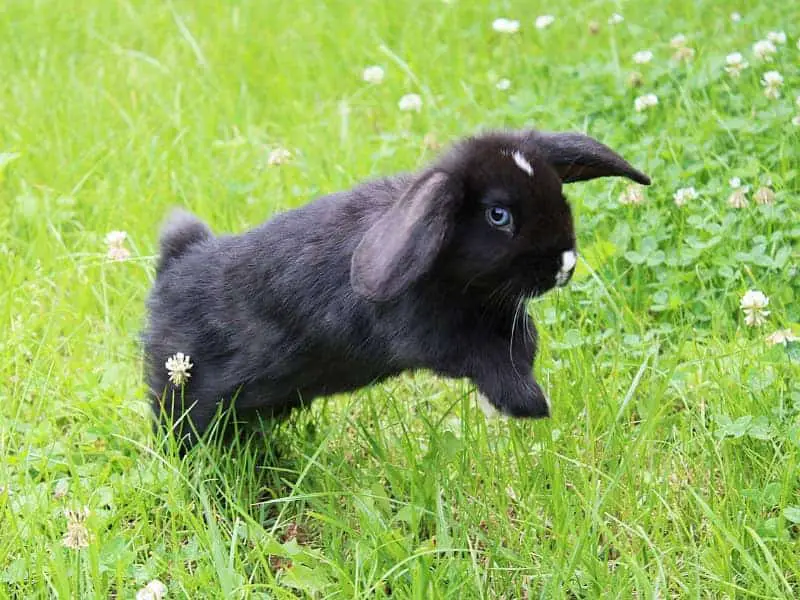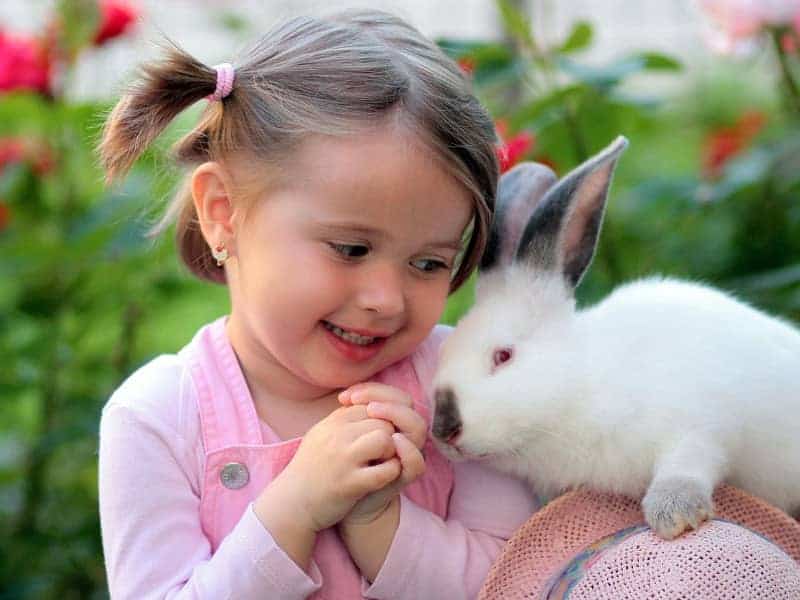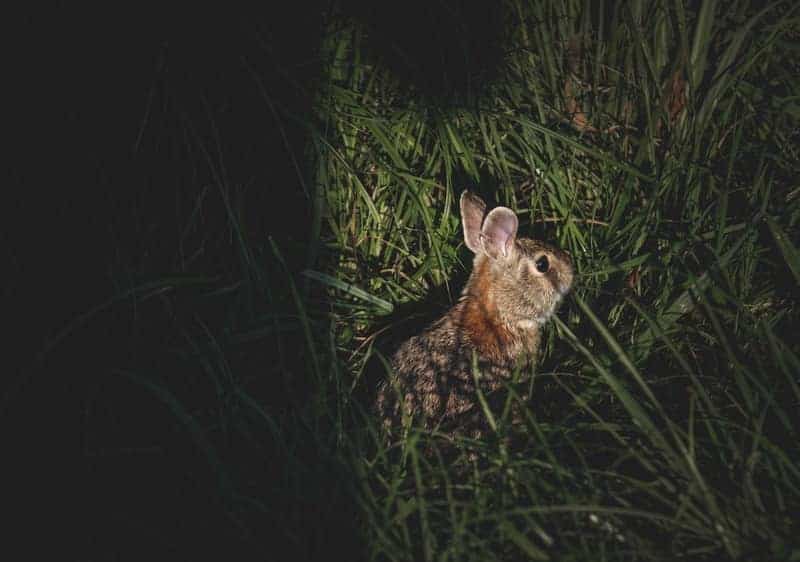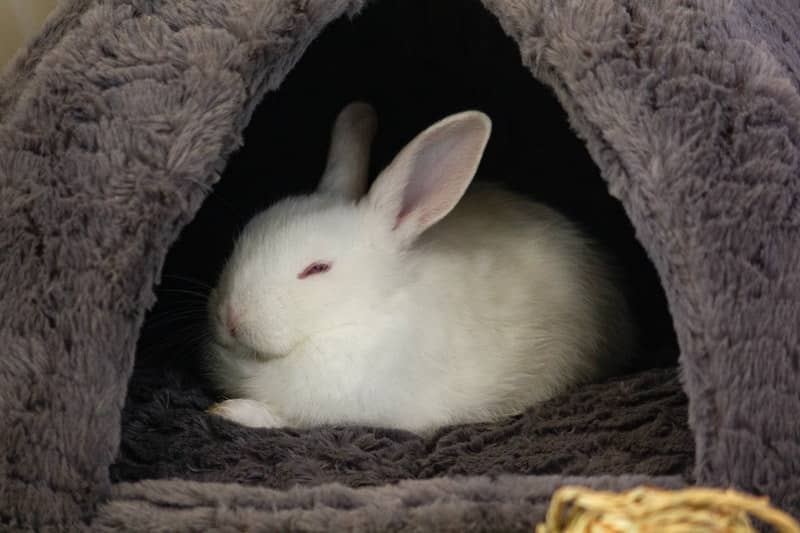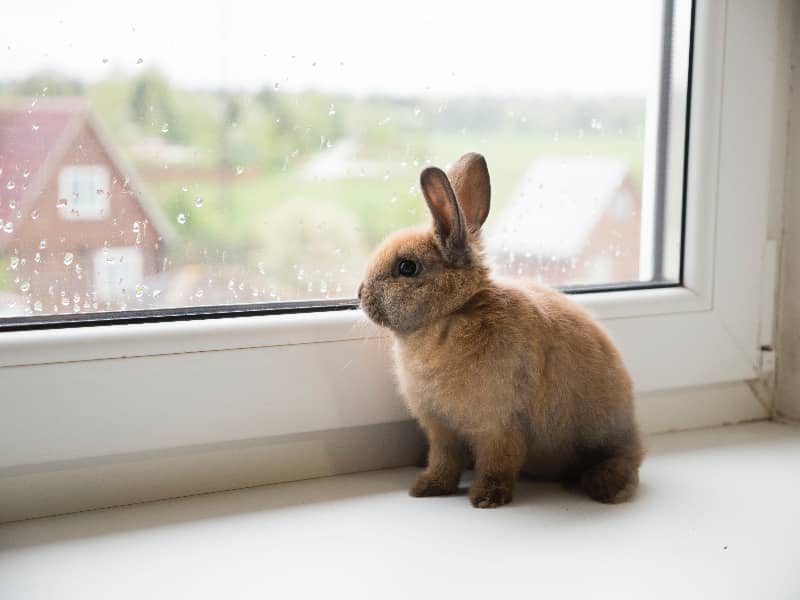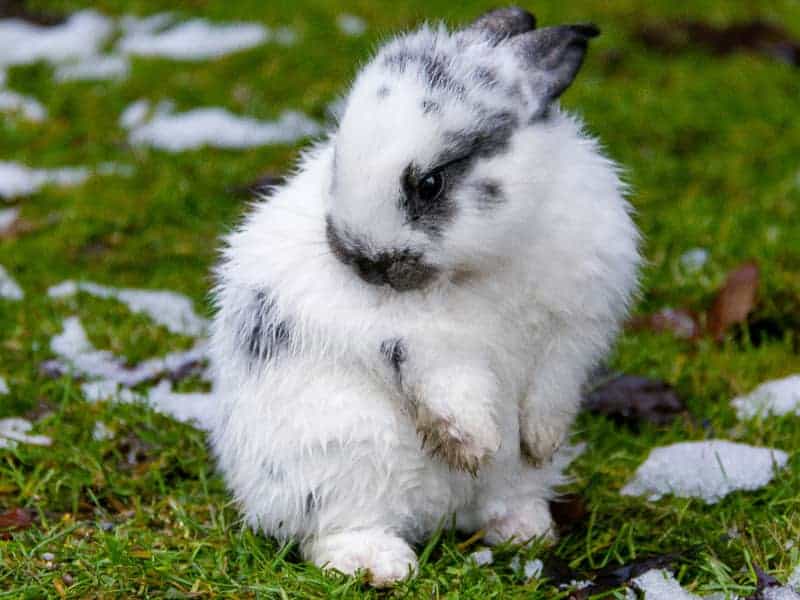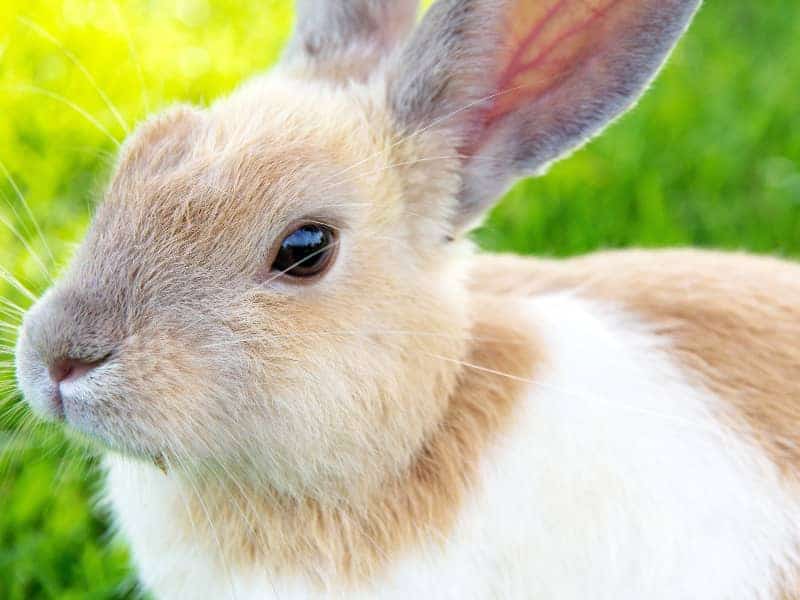
Are rabbits allowed to eat melons?
Hello and welcome to this in-depth look into the world of rabbit nutrition. You may know the basics of proper rabbit nutrition, but today we're going to dive a little deeper and address a specific question: "Are rabbits allowed to eat melons?"
- Are rabbits allowed to eat melons?
- A brief insight into rabbit nutrition
- What we know about melons
- Melons and rabbits: A sweet story?
- Not all melons are the same
- Important tips for feeding melons
- Other healthy snacks for your rabbit
- Melon as a reward?
- What does the vet say?
- Dealing with digestive problems
- Melon fun: game and nutrition
- The chemistry of melon
- The melon compared with other fruit
- The correct storage of melons
- Different reactions to melons
- Conclusion: Are rabbits allowed to eat melons?
A brief insight into rabbit nutrition
Before we dive right into the juicy world of melons, let's take a quick look at the general diet of our fluffy friends.
Rabbits are herbivorous animals, which means that they feed mainly on plant food. The main diet should consist of hay, which is rich in fiber and keeps their digestion healthy. Fresh food, which consists of vegetables and fruits, should only be fed in moderate amounts. Another important aspect of their diet is water - fresh and clean water should always be available.
What we know about melons
Melons are delicious, refreshing and full of vitamins and nutrients. Their high concentration of water and sugar makes them one of the most popular fruits in the summertime. But what about our little furry friends? Are rabbits allowed to eat melons?
Melons and rabbits: A sweet story?
To answer this question, we need to take a closer look at some aspects of melons and their effect on the digestive system of rabbits.
Melons are rich in sugar and water. This means that - despite their many vitamins - they are not exactly the healthiest thing for rabbits to eat in large quantities. Rabbits' digestive systems are designed for a diet high in fiber and low in sugar. So if rabbits eat too much sugar, it can lead to digestive problems like diarrhea.
Melons also contain a lot of water. Although water is vital for rabbits, too much through melons can cause your rabbit to drink less water. This can lead to dehydration, especially in hot weather.
Not all melons are the same
There are different types of melons, such as watermelons, honeydew melons or cantaloupe melons. Watermelon is very rich in water and has less vitamins compared to other melons. Honeydew melons and cantaloupe melons, on the other hand, are richer in nutrients but contain much more sugar.
So if you plan to feed melon to your rabbit, be careful what type of melon you choose, and remember that less is often more.
Important tips for feeding melons
Now that you know the basics, here are some useful tips for feeding melons to rabbits:
- Feed in moderationAs mentioned earlier, fruit should only be a small part of your rabbit's diet. A small amount of melon as a treat is fine, but not as a main food source.
- Do not forget the coresMelon seeds can be a choking hazard for rabbits. Therefore, make sure to remove all seeds before feeding melon to your rabbit.
- Remove shell: The peel of melons can be difficult for rabbits to digest. It is therefore advisable to remove the peel before feeding.
- Freshness is the keyMake sure the melon is fresh. Avoid giving overripe or spoiled melon to your rabbit, as it can cause diarrhea or other health problems.
Other healthy snacks for your rabbit
While we have focused on melons, there are many other healthy snacks you can offer your rabbit. Fruit should only ever be a supplement to the basic diet, but there are many vegetables that rabbits love and that are good for them. Broccoli, carrots, peppers and parsley are just a few examples. However, make sure you introduce new foods slowly and watch for possible digestive issues.
Melon as a reward?
Melon is sweet and juicy, and many rabbits love its taste. Therefore, it can be an excellent reward when you are training your rabbit. Remember when we talked about melon being fed in moderation? Well, as part of a training program where you get your rabbit to exhibit certain behaviors, the occasional piece of melon might be just the thing.
What does the vet say?
It is always a good idea to seek the advice of a veterinarian when you have questions about your rabbit's diet. Each rabbit is unique and has its own nutritional needs. Therefore, it can be helpful to consult an expert to ensure that your pet is getting the best diet possible.
Dealing with digestive problems
If your rabbit has eaten too much melon or another high-sugar fruit and is showing signs of digestive problems, it is important to consult a veterinarian immediately. Some signs may include: Diarrhea, loss of appetite or a bloated belly.
It is important to emphasize that although melon is safe for rabbits in moderation, overfeeding can lead to serious health problems.
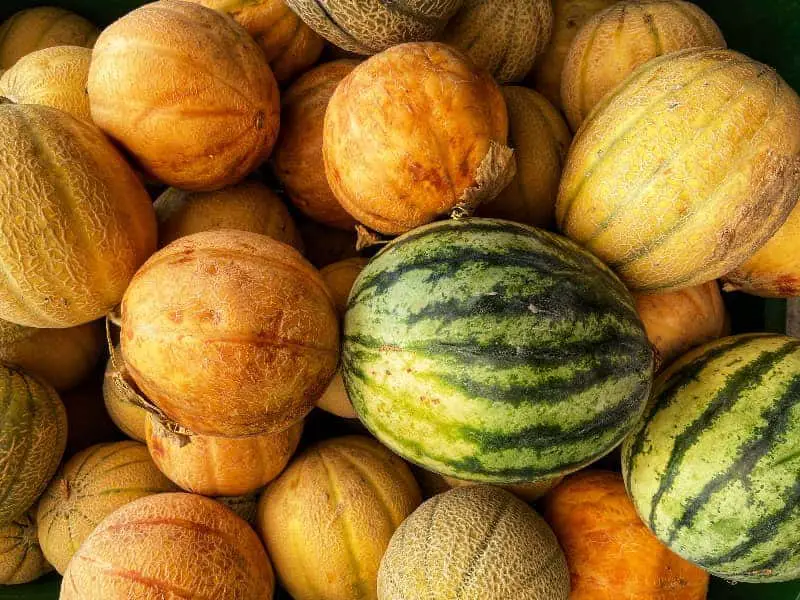
Melon fun: game and nutrition
Did you know that you can use melon not only as a snack, but also as a toy? Rabbits are curious animals and love to play with their food. You can hide small pieces of melon in their cage and encourage them to look for it. This provides a great opportunity for mental stimulation and physical exercise.
The chemistry of melon
Let's look at melon from a more scientific perspective. Melons contain numerous health-promoting ingredients such as vitamin A, vitamin C, potassium and folic acid. These vitamins and minerals can help boost your rabbit's immune system and support its overall health.
However, the vitamins and minerals in melon are not the only reason why it is such a tasty snack for your rabbit. Melons contain a high concentration of sugar, which gives them their sweet taste. This sugar can be very attractive to rabbits, but as we mentioned earlier, too much sugar can lead to health problems.
The melon compared with other fruit
While we have discussed the advantages and disadvantages of melons for rabbits, it may also be helpful to compare them to other types of fruit. Other fruits such as apples, pears and berries can be used as snacks for rabbits similar to melons in moderation. These fruits also contain valuable vitamins and minerals but, like melon, can have high sugar levels.
The correct storage of melons
Once you have purchased melon for your rabbit, it is important to store it properly. Uncut melons should be stored at room temperature, while cut melons should be stored in the refrigerator. Remember to bring the melon to room temperature before feeding, as cold food can cause digestive problems.
Different reactions to melons
Finally, it is important to emphasize that each rabbit is individual and reacts differently to different foods. While some rabbits love melon and tolerate it without problems, others may be more sensitive to the high sugar content. It is therefore important to monitor your rabbit closely and watch for possible signs of discomfort when introducing new foods.
Your rabbit's diet can be a complex one, but with a little knowledge and forethought, you can make sure he gets a healthy and varied diet that meets all his needs.
Conclusion: Are rabbits allowed to eat melons?
In summary, melons in moderation can be a safe and tasty addition to your rabbit's diet. They contain valuable vitamins and minerals that can contribute to your pet's health and well-being. However, it is important to keep in mind that the high sugar and water content of melons can lead to health problems if consumed in excess.
As with introducing any new food, it is important to do so slowly and watch your rabbit for signs of discomfort. Remember to always consult a veterinarian if you are unsure about your rabbit's nutritional needs or if he shows signs of illness.
At the end of the day, our goal as responsible pet owners is to keep our rabbits healthy and happy. And sometimes that means treating them to a sweet treat like a melon - in moderation, of course!
Author

-
Garden animal - A life with nature
Welcome to my animal blog! My name is Dirk and I am happy to take you on my journey through the fascinating world of animals and gardening.
Born 54 years ago, I have had an insatiable curiosity for the animal world around me since childhood. Although I have moved professionally in other industries, my true passion has always been animals and nature. It is remarkable how a small garden has become such an important part of my life.
Many of my fondest memories are associated with the animals that share our home. Whether it's the curious squirrels that scurry across the trees in the morning, the colorful variety of birds that visit our feeders, or the busy bees and butterflies that pollinate our flowers, every moment with them is invaluable to me.
This blog is my contribution to share my experiences, discoveries and insights with like-minded people. Here I will share stories of unforgettable encounters with animals, give tips on gardening and creating wildlife-friendly habitats, and take you on my journeys through nature.
Thank you so much for being here!
Cordial,
Dirk aka garden animal
Last posts
- 27. February 2024PetsVeganes Hundefutter – Grün und Gesund?
- 18. January 2024ChickensOregano für Hühner
- November 27, 2023HamsterDiurnal hamsters
- November 24, 2023HamsterHamster hammock

